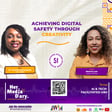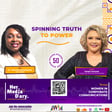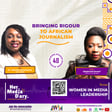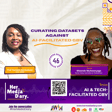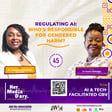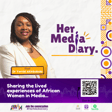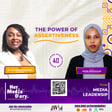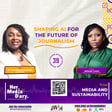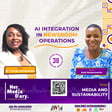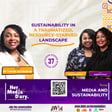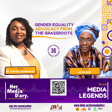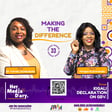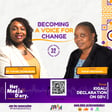
Her Media Diary Episode 49: “Seen, Heard & Leading in Corporate Spaces” with Fatima Jones
Fatima Jones is the Chief Marketing and Communications Officer at the Dance Theatre of Harlem. With a career spanning over 20 years in public relations, marketing, and communications, predominantly in the nonprofit and arts sectors, her specialty lies in positioning cultural institutions in ways that not only increase visibility but also ensure they are culturally relevant, inclusive, and reflective of diverse audiences.
In this episode, Fatima speaks on age-old strategies and principles for effective corporate communication that are still relevant today despite technological advancements.
She cited times when she was asked to be seen and not heard; to just be the ‘black face’ in the room whose opinion is not needed. She also talks about some of the things that keep her going as a black female in the corporate communications sector, regardless of the many barriers that come with it.
Subscribe, leave a review and share this episode with someone who needs to hear it.
If you’d like to join an episode of this podcast, send an email to yemisi@africanwomeninmedia.com. Or visit our website at www.hermediadiary.com
Subscribe and follow Her Media Diary on all your favourite podcast platforms. Also, tune in to our partner radio stations from anywhere across Africa. And don’t forget to join the conversation using the hashtag #hermediadiary.
